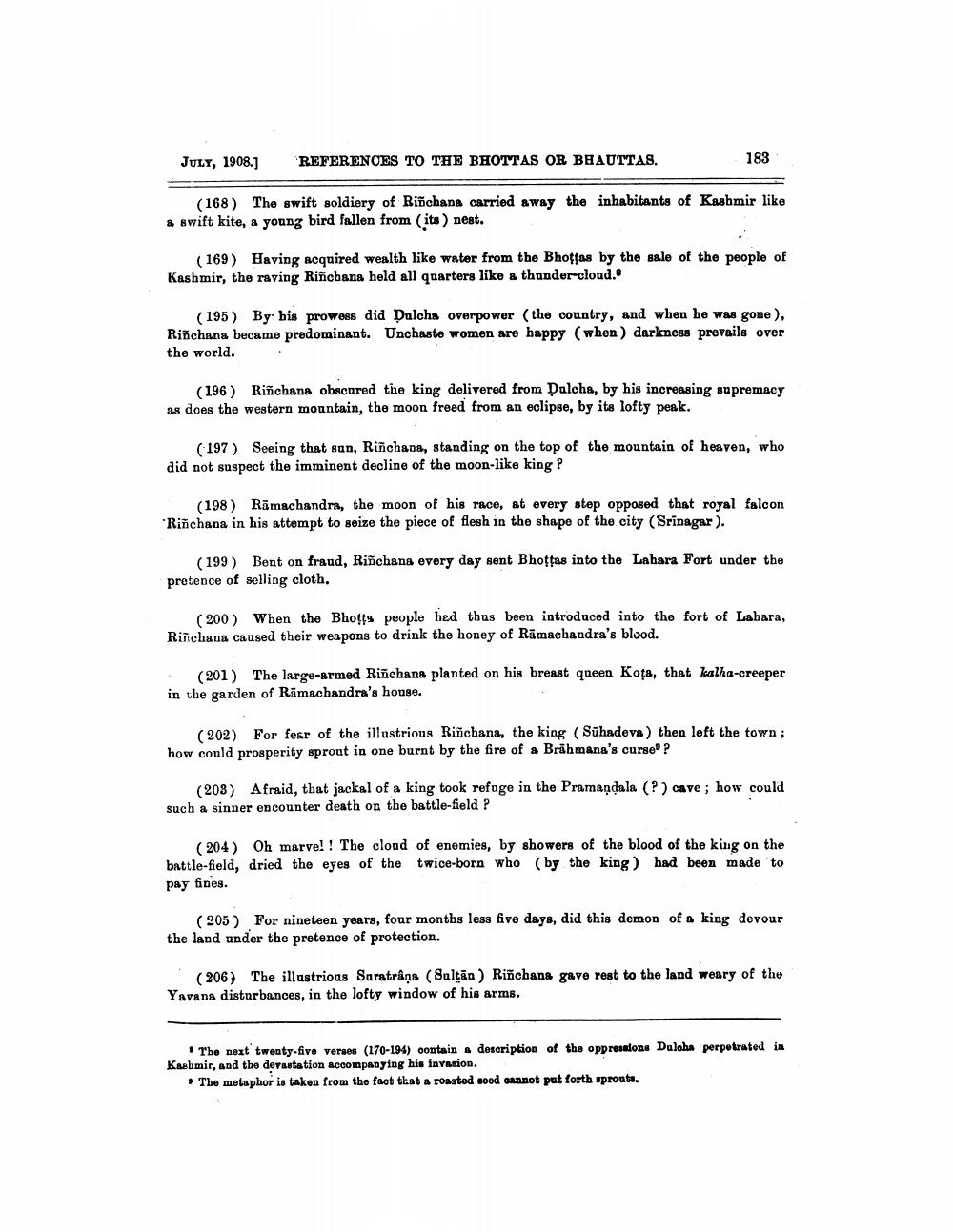________________
JULY, 1908.)
REFERENCES TO THE BHOTTAS OR BHAUTTAS.
183
(168) The swift soldiery of Riñchana carried away the inhabitants of Kashmir like a swift kite, a young bird fallen from its ) nest.
(169) Having acquired wealth like water from the Bhoffas by the sale of the people of Kashmir, the raving Riñchana held all quarters like a thunder-cloud.
(195) Bybis prowess did Dulcha overpower (the country, and when he was gone), Riñchana became predominant. Unchaste women are happy (when) darkness prevails over the world.
(196) Riñchana obscured the king delivered from Dalcha, by his increasing supremacy as does the western mountain, the moon freed from an eclipse, by its lofty peak.
(197) Seeing that san, Riñchada, standing on the top of the mountain of heaven, who did not suspect the imminent decline of the moon-like king ?
(198) Rāmachandra, the moon of his race, at every step opposed that royal falcon Riñchana in his attempt to seize the piece of flesh in the shape of the city (Srinagar).
(199) Bent on fraud, Riñchana every day sent Bhotas into the Labara Fort under the pretence of selling cloth.
( 200 ) When the Bhotts people hed thus been introduced into the fort of Lahara, Rischana caused their weapons to drink the honey of Ramachandra's blood.
(201) The large-armed Riñchana planted on his breast queen Kota, that kalha-creeper in the garden of Ramachandra's house.
(202) For fear of the illustrious Riñchana, the king (Sühadeva) then left the town; how could prosperity sprout in one burnt by the fire of a Brühmana's curse
(203) Afraid, that jackal of a king took refage in the Pramandala (?) cave; how could such a sinner encounter death on the battle-field ?
(204) Oh marve!! The cloud of enemies, by showers of the blood of the king on the battle-field, dried the eyes of the twice-born who (by the king) had been made 'to pay fines.
( 205 ) For nineteen years, four months less five days, did this demon of a king devour the land under the pretence of protection.
(206) The illustrious Saratrâņa (Sultan ) Riñchana gave rest to the land weary of the Yavana disturbances, in the lofty window of his arms.
. The next twenty-five verses (170-194) contain a description of the oppression, Duloha perpetrated in Kashmir, and the devastation accompanying his invasion.
. The metaphor is taken from the fact that a roasted seed cannot pat forth sprouta.




